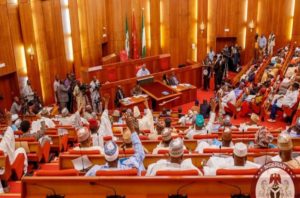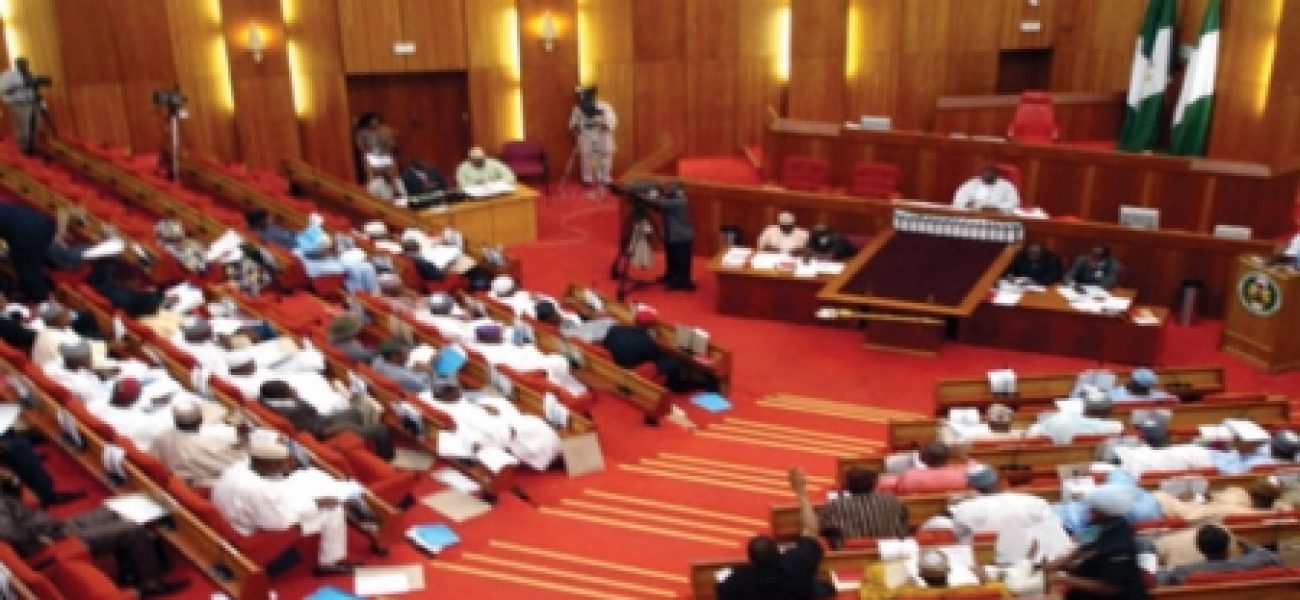 The Senate during its plenary session on Tuesday 6 November 2018 passed 3 House of Representative Bills transmitted for concurrence (a procedure agreed by the leadership of both chambers to save time on non-controversial Bills for quick passage). The Bills seek to re-enact a new National Housing Fund Act, re-establish the Federal Mortgage Bank of Nigeria and establish an Emergency Management Agency in the Federal Capital Territory (FCT) respectively.
The Senate during its plenary session on Tuesday 6 November 2018 passed 3 House of Representative Bills transmitted for concurrence (a procedure agreed by the leadership of both chambers to save time on non-controversial Bills for quick passage). The Bills seek to re-enact a new National Housing Fund Act, re-establish the Federal Mortgage Bank of Nigeria and establish an Emergency Management Agency in the Federal Capital Territory (FCT) respectively.
A review of the National Housing Fund Bill for instance reveals its target as increasing the pool of funds available for housing development by increasing the amounts payable to the Fund from its contributors which include Nigerian workers, employers, registered insurance companies and self-employed persons as well as penalties for offenders. There is however an exception for commercial/merchant banks whose obligation to invest 10 percent of its loans and advances at an interest rate of 1 percent under the Bill are same under the existing legislation that was enacted twenty- six years ago. The Bill also complements the provisions of the Bill seeking to re-establish a Federal Mortgage Bank [1] that was highlighted to have passed in Senate. The Federal Mortgage Bank is to administer the fund created in the National Housing Fund Bill.
There may however need to make further amendments to some clauses in the National Housing Fund Bill which are contradictory or beg further questions. For example, clause 7 of the Bill which enables employers to deduct 2.5% percent of the monthly salary of an employee who earns a basic salary of N18,000 a year seems to be in conflict with clause 4 of the Bill which subjects workers earning an income of N10,000 a year to the same percentage deduction. The clauses are not only contradictory by giving different sums for employees/workers but contain basic salaries below Nigeria’s current minimum wage of N18,000 per month (now set to increase to N30,000).
Other gaps include its failure to state what happens where a contributor who has not obtained a housing loan from the Federal Mortgage Bank reaches the age of 60 years or is retired from his employment and becomes incapable of continuing contribution with the fund [2]. Section 17 of extant provisions addresses this by entitling such contributor to a refund within 3 months of his application at a 4% interest rate [3].
The third Bill seeks to provide for the establishment of an Emergency Management Agency in the Federal Capital Territory (FCT) in a manner similar to the objectives of the National Emergency Management Agency (NEMA) Act. However, it is unclear what the passage of the Bill is intended to address as the FCT is already covered under the NEMA Act which co-ordinates and facilitates resources in disasters [4] nationwide.
1 Clause 18 of the National Housing Fund (Repeal and Enactment) Bill, 2017
2 Clause 18 of the National Housing Fund (Repeal and Enactment) Bill, 2017
3 Section 17 of the national Housing Fund Act, 1992
4 Clause 6(f) of the National Emergency Management Act

